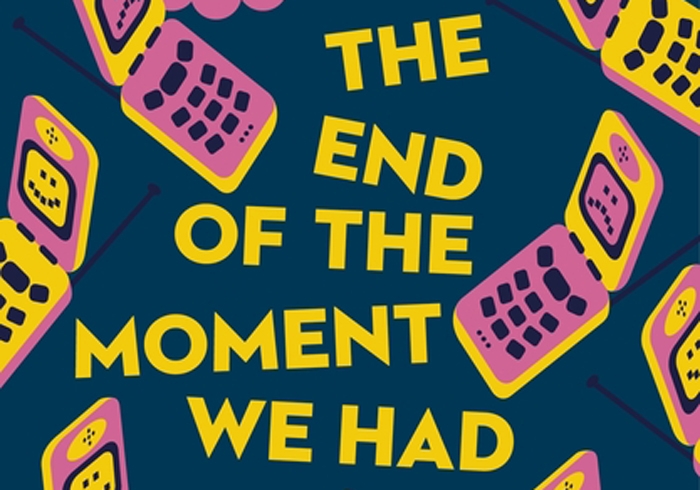Borders, and how culture might cross or challenge them, are much on my mind. Which might explain my attraction, as I scanned the airport bookshop’s shelves, to a slim volume by a Japanese novelist, translated in the US and published by a British press named after Russia’s national poet.
It seemed doubly fitting that Toshiki Okada’s novella The End of the Moment We Had should describe the retreat of two young lovers to a cheap Tokyo hotel, another archetypal example – beside airports – of what the anthropologist Marc Augé calls ‘non-places’. In a room ‘with no clocks and no sun’ the pair fuck away the first days of the Iraq War, never knowing the time and venturing out only once to eat and, in passing, to observe an antiwar protest. They are not indifferent to the US-led invasion, having met at a performance by a visiting theatre troupe in which the actors tried, clumsily, to engage the audience in debate over the violation of sovereignty; both are deeply moved by the experience, and the space to which they are moved is a love hotel.
This ‘special place’ – in which the couple are liberated from their low-wage, disaffected, ‘real’ selves – serves here as an analogue for the (non)space to which literature, theatre or art transports us. These are sites, to return to Augé, of pure ‘circulation, consumption and communication’ to which no one (or everyone) belongs and which exist outside history. In the pauses between sex, the couple speculate that, by the time they emerge from their anodyne white cube, the war will have ended. As if, by turning the television off and fucking, they might change the course of history. No observer of contemporary art – nobody sat at an airport awaiting a flight to join the artworld caravan – need strain to make the parallels.
And yet the form in which the story is written belies (or at least troubles) such a cynical conclusion. The central theme of movement across bodies and minds – and the blurring of lines separating the individual from the collective – is realised in virtuoso shifts of narrative perspective. A startling opening passage, resembling a long tracking shot, moves from a disembodied description of the passage of a group of drunken men through Tokyo into the consciousness of a single character, from where it moves, in a spectacular coup de théâtre, into a first person monologue by a girl of their fleeting encounter two days earlier. Her intrusion into the story – and the fact that she doesn’t reappear, or at least not in the same guise – thoroughly disrupts the conventional unity of place and time that Okada seems initially to observe. It’s exhilarating.
The story is both highly constructed – at one point, a character explains her use of a punctuation mark, flagging up to the reader that this is a written and mediated account – and disrespectful of conventional boundaries. The narration flows from one body into another, back and forth in time, creating a space in which anything seems possible and everything is in play. Whether or not this is a mere illusion of freedom is for the reader to decide. On leaving the hotel, and discovering the war isn’t over, the girl mistakes a defecating homeless person for a dog, and vomits.
Toshiki Okada, The End of the Moment We Had (2018, trans. Samuel Malissa, Pushkin Press, £7.99)
